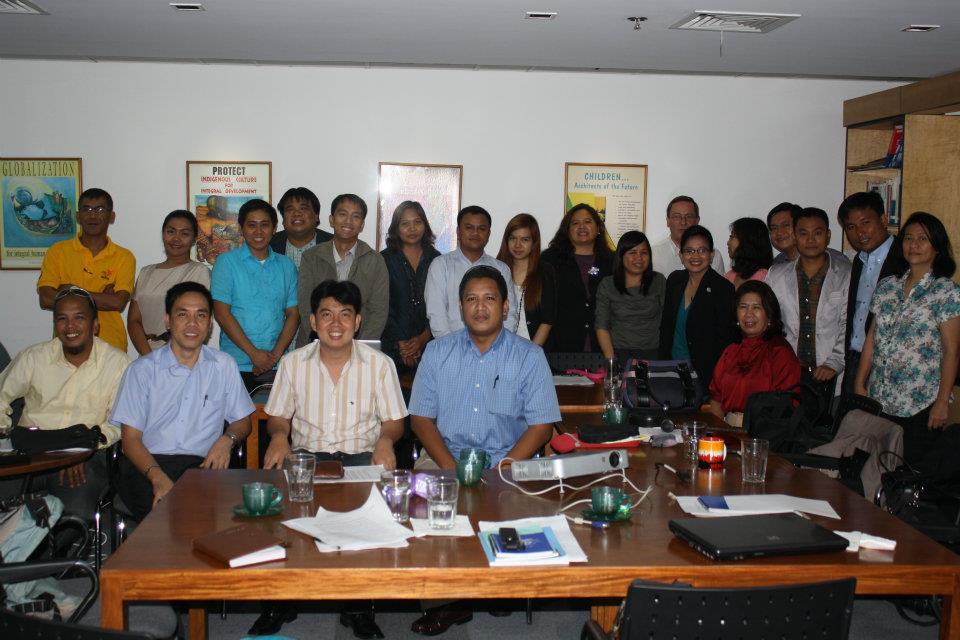QUESTIONS ON DEMOCRACY IN THE PHILIPPINES: A MYTH

By: Lito C. Lorenzana | October 3, 2013
President at Centrist Democracy Political Institute
1Loves.
0Comments.
0People boxed this.
For many years, we have been touted as the oldest Democracy in Asia. During the cold war we were considered the last bastion of America in the Far East. And during the commonwealth and the American regime, we were America’s Brown little brothers (who was this American Senator who ridiculed us as “brown monkeys†given self-government).
The United States has decreed before we were let loose by her in the post-war that Democracy was right for us. It was spoon fed and when we assumed self-government after World War 2, we proclaimed ourselves proudly an independent Democratic Country – despite the residues of the American regime (whether we are truly independent of America will be a subject of another debate – not this time).
We truly cannot cut our umbilical cord with Mother America. We speak her tongue, we love her movies and celebrate her inventions –Mother’s Day and McDonald’s – and we have 2 million Pinoys in that country (if we take a poll now, we will find that none in this room has no relations in America).
Singapore’s former prime minister Lee Kwan Yu in his visit a few years ago was arrogant in asserting that Democratic Government was the wrong model for the Philippines – that we needed to give up a little of the freedoms Democracy has allowed us in order to develop economically and prosper. Perhaps, he was right. Furthermore, he said, we needed a strong government, a strong state and even a strongman to lead us. Shades of Marcos!
Food for thought! The Philippines was the number 2 country in economic prosperity after Japan, just before the war. Today, we find ourselves also number 2 - before Bangladesh.
Is this what Democracy is all about - an interminable decline to political-economic oblivion?The word “Democracy†does not even appear in the American constitution or in its Declaration of Independence. What have they given us? Let us examine the evidence at hand in an approach the academe in this group love most – a little departure from the Socratic Method to stimulate critical thinking.
Kim Jong-Il, the President of the “Hermit Kingdom†of Northdeclared that his country is a democracy. In fact, it is officially named as the Democratic People’s Republic of Korea (DPRK).
East Germany, before it collapsed in 1989, headed by their Prime Minister Erich Honecker, was officially called German Democratic Republic (GDR).
These blatantly communist enclaves have Democracy attached to their State.
Is Democracy, we hold dear a myth or a reality?
II 10 Questions Dr. Peter Koeppinger, the KAS representative in the Philippine and the other Convenor of the CDM has wondered himself whether we have a Democracy. This is a take-off from incisive questions and I will paraphrase.
1. Democracy means representation of all people. Of course we have the right to vote – an essential ingredient of Democracy –and elect a list of candidates to represent us; but do we have a say even in the selection of candidates themselves before voters vote them into office. In short, do we have influence in the nominating mechanisms of political parties for the choice of the candidates themselves?
In extremis – an array of pigs and dogs are nominated as candidates and laid before the voters. We have the right to vote, yes - some pigs; maybe reject some dogs – or candidates known to be rapists, religious fanatics and killers. Who chooses these candidates in the first place, anyway? Can we influence them to give all voters a better menu for choices –even before we elect them?
If we don’t have that influence, there is something wrong with the democratic system.
2. Democracy means participation of people in political decision making affecting their lives. Are we asked to participate in the process for example, on enactment of a fair and equitable tax system; on environmental policy or simple decisions on where to put the community’s garbage dump? Do the candidates we elect into office because we share their positions involve us in crafting such decisions?
If not, there is something wrong with the system.
3. Democracy means respect for human rights and the protection of the rights and interests of disadvantaged groups and minorities by a strong state. The Ampatuan Massacre and the Philippine reputation for having the most number of media persons and journalists killed belie the democratic concept. Add to this the litigated awarding by international courts of the thousands of “desaparecidos†during the Marcos regime.
There is really something wrong with the system.
4. Democracy means the promotion of self-determination and freedom of each citizen. This involves the principle of subsidiarity which devolves, decentralizes and disperses rights, powers and competencies to the lowest level of governance –where citizens have a more direct say and participation. These also include the revenue collection capability of LGUs. Do we have this state of affairs in our government or are these still highly centralized.
If not, there is something wrong with the system.
5. Democracy means responsible control of power primarily by the executive. The executive branch of our government is now notorious for flaunting their powers and prerogatives to the detriment of the governed.
Witness the ZTE scandals, the Fertilizer scam and the “Hello Garci†election anomalies – all these were prevented from being aired at the proper forum through the impeachment mechanism because of the control by the executive of the legislative branch of government.
Democracy and good governance presupposes that the co-equal legislative and judicial branches are independent, hence not dictated upon by the executive branch. Is this the reality in Philippines?
If not, there is something wrong with the system.
6. Democracy means equal value of each person and therefore equality of opportunities. In the area of political technocracy, does a qualified but poor person have an equal chance against an unqualified wealthy competitor to be drafted into running for public office and eventually win?
In the world of business, commerce and jobs, does an ordinary citizen have the same opportunity against one attached to a dynasty or one well connected to the bureaucracy?
If not and if these opportunities open up to supplicants and the ambitious due to extraneous influence not on the inherent value of each person, there is something wrong in the system.
At this point, the questions will cease to be rhetorical and the course of this political discourse will be more direct and we will attempt to inculcate into the CDM prospects what we believe Democracy should be.
7. Democracy will function well under an environment where leaders are elected based on loftier moral qualification, their record of competence and their potential to make worthy decisions. Are you ready to vote for the most qualified among candidates or will you offer your votes to the highest bidder, a matinee idol or a popular name brand?
8. Participation in decision making process is one of the hallmarks of democracy and it needs people and voters with sufficient level of information and understanding of the current and relevant issues. Do you read the papers and magazines, listen to the radio, watch TV, access the internet – altogether to spend enough time to gather information needed to develop a well-studied opinion.
And do you request actively such information from your local media – radio stations, papers, TV – when you realize that they do not provide enough or only distorted information on important issues?
9. Participation in democratic processes needs commitment. Are you prepared to invest time and energy into these democratic processes, be they in the form of influencing your elected representatives; or if a party functionary, participate actively in thematic debates and discourse, help in candidate selection mechanisms and be disposed to run for public office yourself?
10. Democracy needs acceptable ethical standards for its adherents and leaders. It needs absolute willingness to respect the rule of law, a minimum of fairness between political opponents and competitors and the readiness of leaders to serve first and foremost the clientele – the people - more than their personal interests. Are you ready to be an active participant, with and acquired knowledge and competence, commitment and willingness to serve? This is the ultimate requirement of democracy.
Democracy demands Democrats.
LITO MONICO LORENZANA Hotel Supreme, Baguio City April 9, 2011
- More From this Author
- Comments








